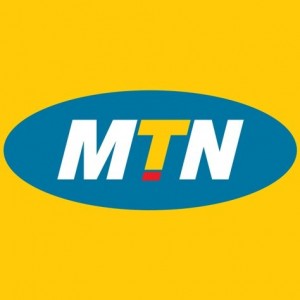 To know what it is like to make a mobile phone call in Nigeria, ask anyone to turn out their pockets or upend their purses. One, two, three and sometimes even four phones tumble out into view, all with different carriers in hopes of being able to connect a call without it dropping out in Africa’s most populous nation.
To know what it is like to make a mobile phone call in Nigeria, ask anyone to turn out their pockets or upend their purses. One, two, three and sometimes even four phones tumble out into view, all with different carriers in hopes of being able to connect a call without it dropping out in Africa’s most populous nation.
Nigeria’s four biggest telecommunications companies have faced federal fines and complaints from customers for years, though no one could drop their service out of fear of giving up their number. That changed Monday, when the Nigerian Communications Commission started a number exchange between the country’s four main carriers, allowing customers to keep their number and switch carriers every 90 days for free.
Customers and those in the business believe the new program will force the carriers to provide better service at the risk of losing their customers. And at greatest risk is South Africa’s MTN Group Ltd., whose long dominance in the market could be challenged as it faces increasing problems with poor service and attacks on its equipment.
“It means deepened competition, it means freedom for the subscribers,” said Lanre Ajayi, the president of the Association of Telecommunications Companies of Nigeria. “It means if you’re unhappy with an operator, you can easily move to another one without losing your telephone number — which is essentially your identity.”
Mobile phones are essential for communication in Nigeria, for consumers and even security forces alike. The state-run telephone company in Nigeria collapsed years ago. Internet access comes over routers with mobile phone SIM cards inside.
In Nigeria, there are some 95 million mobile phone lines, making it one of the world’s top markets. In traffic and everywhere else, hawkers wave mobile phone recharge cards. While voice calls carried the majority of the network, data is increasingly being used across the country as well, as many use their phone as their primary device to reach the Internet.
While there are a number of providers, the dominant force in Nigeria remains MTN, which was one of the first companies to enter the market when it opened. Today, the company has some 47.4 million customers in Nigeria and has revenues there into the billions of dollars a year, according to its 2012 annual report.
However, the market has become more fluid in recent years. Bharti Airtel Ltd. of India has initiated a price war, slashing call costs to pennies. Abu Dhabi-based Etisalat also has made a big push for customers, mostly for their data speeds. Local firm Globacom Ltd. also remains a force.
Those lower costs, as well as cuts on its fiber lines and bombings of mobile phone towers by Islamic extremists in north Nigeria, hurt MTN’s quality in the last year, said Brett Goschen, CEO of MTN’s Nigerian subsidiary. Speaking to The Associated Press on Monday, he acknowledged the new number exchange system likely would see customers leave MTN in the short term.
“The price decreases in the market in the last couple of years has increased the traffic enormously and it has put pressure on our network,” Goschen said. “I think the market realizes that and that’s why we’ve been investing so significantly. … We’re slightly behind the curve from where we want to be, so that is a bit of issue.”
Yet it remains unclear how well the service will take off, as some may believe it costs extra or don’t want the hassle. It takes as long as two days for the number to clear and the new network to begin service. An AP journalist who attempted to carry his number over to a new provider Monday also got an error message.
But the competition for the lucrative and growing mobile market in Nigeria likely will become even more intense, as signaled by company official after company official who urged an audience in Lagos celebrating the service’s start to switch to their carrier.
“It’s a survival instinct,” said Segun Ogunsanya, the CEO of Airtel’s Nigerian subsidiary. “You must make sure your service is good.”
admin
Media Outreach
African Media Agency2





